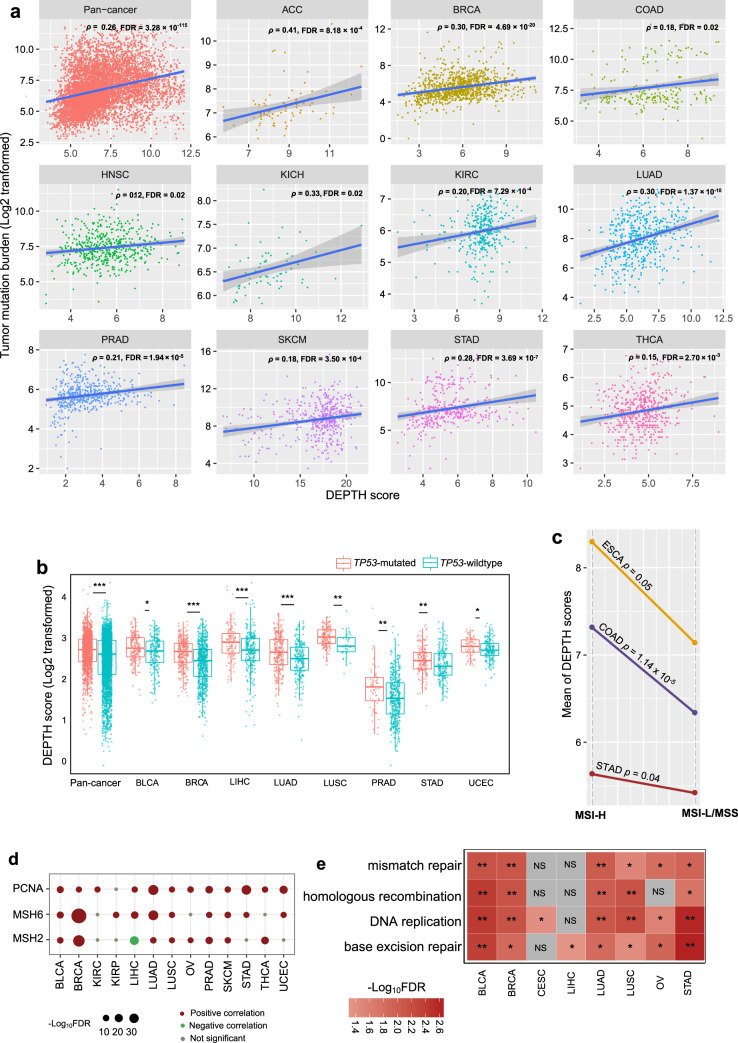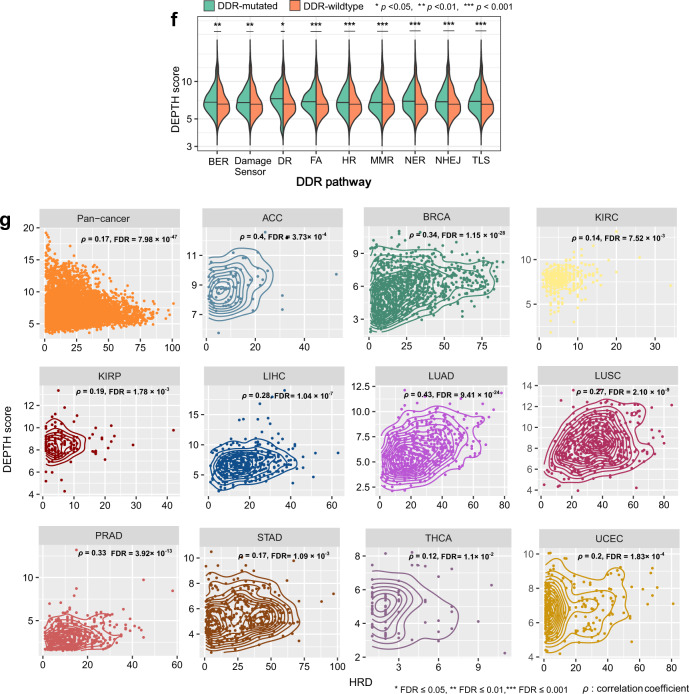Fig. 2. Association of DEPTH scores with genomic instability.
a The positive correlations between tumor mutation burden (TMB) and DEPTH scores in pan-cancer and in 11 individual cancer types. Spearman’s correlation test, false discovery rate (FDR), and correlation coefficient (ρ) are shown. The FDR was estimated by the Benjamini and Hochberg method66 to adjust for p-values in multiple tests. TMB, the total somatic mutation count in the tumor. b TP53-mutated tumors display significantly higher DEPTH scores than TP53-wildtype tumors in pan-cancer and in multiple individual cancer types (FDR < 0.05). c MSI-high (MSI-H) tumors have significantly higher DEPTH scores than MSI-low (MSI-L)/microsatellite stability (MSS) tumors in COAD, STAD, and ESCA (p ≤ 0.05). MSI, microsatellite instability. d The positive associations between the expression of DNA mismatch repair proteins (PCNA, MSH6, and MSH2) and DEPTH scores within multiple individual cancer types (two-sided Student’s t test, FDR < 0.05). e The four DNA damage response-associated pathways more highly enriched in high-DEPTH-score than in low-DEPTH-score tumors within multiple individual cancer types identified by GSEA34 (FDR < 0.05). high-DEPTH-score, DEPTH scores in the upper third. low-DEPTH-score, DEPTH scores in the bottom third. They also apply to the following figures. f Comparison of DEPTH scores between the pathway-gene-mutated and pathway-gene-wildtype groups for nine DDR pathways. DDR, DNA damage repair. BER, base excision repair. MMR, mismatch repair; BER, base excision repair. NER, nucleotide excision repair. FA, Fanconi Anemia. HDR, homology-dependent recombination. NHEJ, non-homologous DNA end joining. DR, direct damage reversal/repair. TLS, translesion DNA synthesis. g The positive correlation between DEPTH scores and HRD scores in pan-cancer and in 11 individual cancer types. HRD, homologous recombination deficiency. *FDR < 0.05, **FDR < 0.01, ***FDR < 0.001, NS: not significant. It also applies to the following figures.


